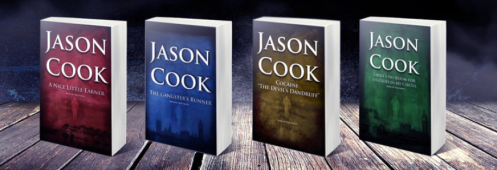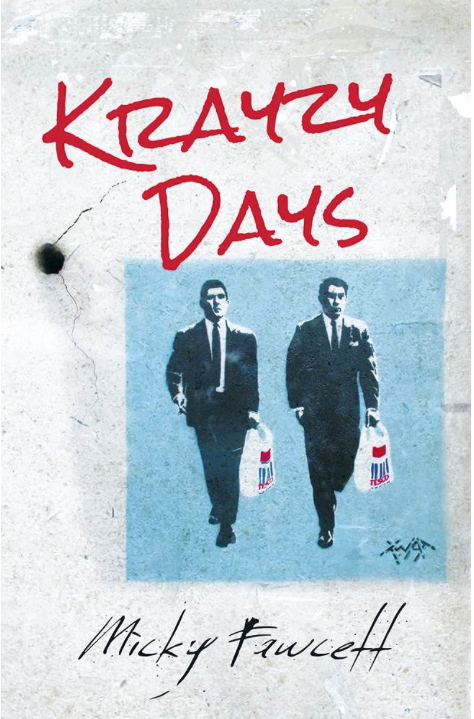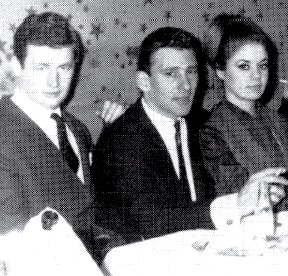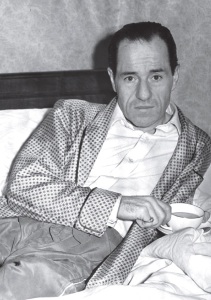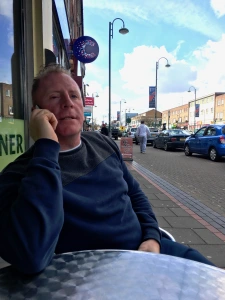
Jason Cook on his phone in Borehamwood
Jason Cook has turned up occasionally in this blog.
The last time was in December 2021 when my opening sentence was “You need grit and determination – and nowadays, ideally, the potential for sequels – to get movies made…”
Jason Cook has grit and determination, is indefatigable, has a staggeringly fertile creative mind and he has sequels and now a prequel.
He also has dyslexia but has so far published four linked semi-autobiographical gangster novels, a children’s book called Rats in Space (the title explains it all) and a novel about the Rave scene, set in the 1980s and 1990s – Euphoria – Pirates of the South.
He has long had plans to film the first of his four semi-autobiographical gangster books There’s No Room For Jugglers in My Circus.
But now his first film is being released and it is a prequel to that, a set-up, for the planned four main semi-autobiographical gangster movies based on his novels.
Cookster: The Darkest Days is being screened this Saturday at the adventurous Genesis Cinema in Mile End Road as part of the London Independent Film Festival.
The plotline?
“A dyslexic teen misunderstood by his family, abandoned by the system and desperate for respect, becomes a drug dealer struggling to balance his addiction and debt to a local gangster while a rival threatens to destroy his world, driving him apart from the woman he loves and a daughter he’s never known.”
JASON: So, after 20 years, we managed to get the budget together from various investors and a film production company called Silent D Pictures.

Indefatigable Djonny Chen of Silent D Pictures
JOHN: That’s Djonny Chen’s company.
He is almost as indefatigable as you…
JASON: Yes. Djonny has made 27 films since Covid – directed and/or produced/executive produced.
And he’s lined up to do another two films with me – Pirates of the South and Rats in Space. as well as Cookster: There’s No Room For Jugglers in My Circus, the follow-up to Cookster: The Darkest Days.
JOHN: And now you’ve written a fifth Cookster book to go with the film.
JASON: Yes. That’ll come out this year.
JOHN: So Cookster: The Darkest Days is about you growing up in Borehamwood, where we both live.
JASON: Yes. We shot it over 18 days in Borehamwood and Radlett – all on location.
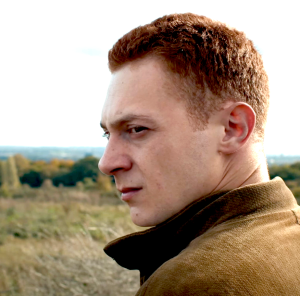
Craige Middleburg plays the slightly older, dodgy Jason
In this film, I’m played from ages 12 to 18. Two actors play me: one younger, one older. Samuel Staite plays young Jason. Craige Middleburg is the older me.
Then there’s Nick Moran from Lock, Stock and Two Smoking Barrels who plays my dad and Tracy Shaw from Coronation Street plays my mum.
JOHN: You shot part of the film at the school you actually attended as a kid.
JASON: Yes. Parkside School in Borehamwood. It doesn’t have the same head as when I was there.
JOHN: Had they heard of you by repute at the school?
JASON: Yes. They’d heard I had been a naughty young lad and that I suffered from ADHD and dyslexia. Back then, they thought I was no use: I lacked confidence and lacked focus and they reckoned I would never amount to anything and I would end up in prison.
JOHN: Well, you did end up in prison, but now you’ve written all these books and co-produced this film.
JASON: I couldn’t read or write at the time when they reckoned I would never amount to anything. I spent most of my younger years standing outside the headmaster’s office: well, it was a headmistress back then.
JOHN: Did she ever amount to anything?
JASON: No. Not that I know of.
JOHN: Did the school welcome you back with open arms?
JASON: They were very helpful. We got the design team to come in and put the classrooms back to the early 1980s. We had the school uniforms, the chalkboards instead of the digital whiteboards they’ve got on the wall now.
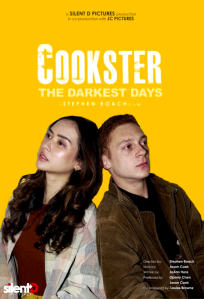
Cookster – The Darkest Days is coming
All the locations had to be re-dressed for the era. We’re talking about me from 12 to 18. So 1975 to early 1980s. We re-dressed my mum’s house.
JOHN: Do you appear in the film?
JASON: You’ll miss me if you blink.
JOHN: Djonny has links to Indonesia.
JASON: Yes, he has links to distribution over there.
JOHN: Any changes to appeal to the Indonesian market?
JASON: We changed one character in the script from British to Indonesian and it worked really well. The actress playing her is Elvira Devinamira. She’s Indonesian.
We leave the film on a cliffhanger, ready to go into the next film Cookster: There’s No Room for Jugglers in My Circus. The government has now given us more tax credits, so we can now claim up to about 70% on the production.
JOHN: And other film projects?
JASON: I’m working on Rats in Space. We’ve got American producers involved now. It’s an animation, based on a true-life story that I wrote.

Jason has plans for Rats In Space – based on a true story ??
JOHN: Yer what? A true life story??
JASON: A French rat was put in a rocket and shot to the Moon. He never made it to the Moon, but he managed to get back alive. So I wrote a story about how he became an astronaut.
JOHN: Will the rat do any promotional interviews to publicise the movie when it comes out?
JASON: That’s difficult to say.
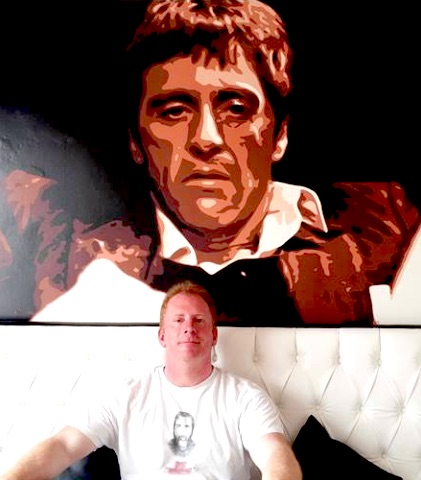
Hirsute Jason is a man of many hats and movie ideas but he has no dandruff…

